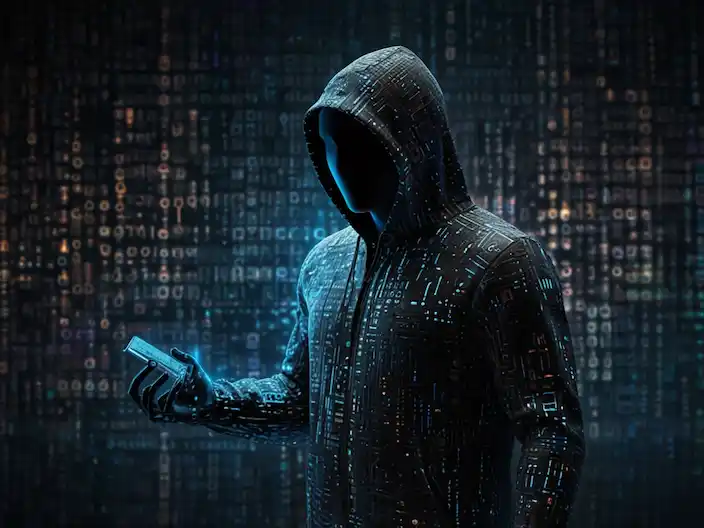Table of Contents
- Introduction
1.1 Development of Emerging Technologies and Legal Challenges
1.2 Examining Legal Challenges of International Transactions in the Metaverse - The Role of Legal Frameworks and Compliance in the Metaverse
2.1 Understanding the Metaverse Concept
2.2 Legal Challenges in the Metaverse
2.2.1 Privacy and Data Protection
2.2.2 Digital Ownership
2.2.3 Social and Ethical Responsibilities
2.2.4 Smart Contracts in the Metaverse
2.2.5 Antitrust and Competitive Regulations
2.3 Developing Proposed Solutions
2.3.1 Establishing Clear and Global Laws for Digital Ownership
2.3.2 Ensuring Data and Privacy Protection
2.3.3 Monitoring User and Platform Behavior
2.3.4 Resolving Digital Disputes
2.3.5 Promoting International Collaboration
2.4 Global Examples of Legal Regulations for the Metaverse
2.4.1 Japan
2.4.2 European Union
2.4.3 United States
2.4.4 South Korea
- Legal Challenges of Cross-Border Blockchain Transactions
3.1 Defining Blockchain and Its Applications
3.2 Key Legal Challenges
3.2.1 Jurisdictional Determination
3.2.2 Compliance with Diverse Regulations
3.2.3 Smart Contracts
3.2.4 Privacy and Personal Data Protection
3.2.5 Security Risks
3.3 Proposed Solutions
3.3.1 International Agreements
3.3.2 Developing Global Standards
3.3.3 Designing Transparent Smart Contracts
3.3.4 Leveraging Advanced Technologies for Data Protection
3.3.5 Continuous Security Monitoring and Evaluation
3.3.6 Education and Awareness
- Integration of the Metaverse and Blockchain in the Digital World
4.1 Integration Potential
4.2 Benefits and Opportunities
4.2.1 Transparent Digital Ownership
4.2.2 Decentralized Economies
4.2.3 Interoperability Across Platforms
4.2.4 Smart Contracts in the Metaverse
4.3 Challenges and Solutions
4.3.1 Joint Governance
4.3.2 Interoperability and Standardization
4.3.3 Security and Privacy
4.3.4 Education and Awareness
- Conclusion
Introduction
With the development of new technologies and the emergence of concepts such as the Metaverse and Blockchain, the digital world has increasingly become an undeniable reality. These technologies have provided countless opportunities for innovation and value creation, but have also brought about numerous legal and compliance challenges. This paper will examine the legal role and compliance in the Metaverse, as well as the legal challenges related to cross-border blockchain transactions.
Legal Role and Compliance in the Metaverse
- Concept of the Metaverse
The Metaverse is defined as an interactive, three-dimensional digital world in which users can interact virtually, conduct economic activities, and acquire new experiences. The Metaverse is an emerging environment that requires cohesive legal and compliance frameworks to protect user rights and regulate business activities. - Legal Challenges in the Metaverse
- Privacy and Data: One of the biggest challenges in the Metaverse is the protection of user data. Companies must comply with data protection laws (such as GDPR in the European Union) and ensure the security of personal information. Data collected in the Metaverse includes user interactions, financial transactions, and even biometric data such as body movements in virtual environments. This level of information can pose significant privacy risks.
- Digital Ownership: In the Metaverse, the ownership of digital assets such as NFTs needs to be legally defined to prevent conflicts and disputes. Rights related to digital assets include copyright, reproduction rights, and ownership transfer. Additionally, challenges related to authenticity and fraud in digital assets should be addressed.
- Social and Ethical Responsibility: Preventing online harassment, discrimination, and inappropriate content in the Metaverse is crucial. Due to the interactive nature of the Metaverse, users can act anonymously, making it difficult to control unethical behavior. Regulating content and interactions in this space is necessary.
- Smart Contracts in the Metaverse: Smart contracts are used in the Metaverse for buying and selling digital assets and providing services. However, these contracts require legal clarity to minimize potential disputes. Additionally, defining contract terms and resolving disputes through digital arbitration systems is another challenging issue.
- Competitive Laws and Monopoly: Large Metaverse platforms may exhibit monopolistic behavior due to market dominance. Monitoring healthy competition and preventing abuse of market power is another legal concern in this area.

- Development of Suggested Solutions
- Establishing Clear and Global Laws for Digital Ownership
- Regulate digital ownership rights such as NFTs through international standards.
- Define user and platform rights and obligations to reduce legal conflicts.
- Use blockchain technologies to ensure authenticity and transparency in digital ownership.
- Data and Privacy Protection
- Develop strict regulations for managing user data.
- Use advanced encryption technologies to protect personal information.
- Create mechanisms for controlled access to user data.
- Monitoring User and Platform Behavior
- Use AI to identify and prevent online harassment.
- Develop ethical frameworks for users and service providers.
- Monitor content published in the Metaverse to prevent misinformation.
- Resolving Digital Disputes
- Establish specialized bodies to resolve disputes arising from smart contracts and business activities.
- Use digital arbitration systems to reduce time and costs associated with dispute resolution.
- International Cooperation
- Develop global standards for economic and legal activities in the Metaverse.
- Collaborate among countries and international organizations to build a cohesive framework.
- Use successful experiences in other digital fields to improve Metaverse laws.

Global Examples of Legal Regulations in the Metaverse
- Japan: The Japanese government has passed specific laws regarding the ownership of digital assets, including NFTs and other assets within the Metaverse. The country is also working on establishing a framework for protecting user data in digital environments.
- European Union: The EU, with its GDPR regulations, is a pioneer in data protection and is working on developing specific regulations for the Metaverse.
- United States: Antitrust laws and intellectual property regulations in the US are applied to oversee commercial activities in the Metaverse. The country is also considering the introduction of new laws to protect users’ rights in this space.
- South Korea: South Korea, as a leader in Metaverse technologies, has announced plans to develop legal and economic infrastructure for this technology. The country is also running pilot projects to regulate Metaverse-related activities.

Legal Challenges of Cross-Border Blockchain Transactions
- Definition and Applications of Blockchain
Blockchain is a distributed ledger technology that allows secure, immutable transactions. One of its key applications is in cross-border transactions, which, due to its decentralized nature, requires reconsideration of international laws and regulations. - Main Legal Challenges
- Determining Jurisdiction: Due to the decentralized nature of blockchain, determining the location of a transaction and applicable laws is complex. In traditional financial systems, the physical and geographical location of a transaction is clear, but in blockchain, data is stored in multiple locations worldwide, and there is no central authority. This makes it difficult to determine applicable laws for international disputes.
- Compliance with Multiple Regulations: Each country has its own laws and regulations that may conflict with each other. For example, anti-money laundering (AML) and know-your-customer (KYC) regulations vary between countries, making it challenging for businesses to comply with all regulations.
- Smart Contracts: Smart contracts running on blockchain may create issues in automating obligations and resolving disputes. For instance, if the terms of a smart contract are not well-defined, it may result in incorrect execution of obligations. Additionally, defining legal jurisdiction for resolving disputes arising from these contracts is a complex issue.
- Privacy and Personal Data Protection: Blockchain transactions are usually recorded publicly in the ledger, which can threaten individuals’ privacy. Furthermore, complying with data protection laws such as GDPR is challenging for companies using blockchain.
- Security Risks: Although blockchain is considered a secure technology, vulnerabilities in smart contracts, digital wallets, and even cryptographic algorithms can create risks.
- Proposed Solutions
- Creating International Agreements: It is essential to establish international agreements to determine judicial jurisdiction and applicable laws in blockchain transactions. These agreements should be drafted in a way that prevents legal conflicts between countries.
- Developing Global Standards: Establishing global standards for compliance with various countries’ regulations, particularly in the areas of AML and KYC, can help companies streamline their processes.
- Designing Transparent Smart Contracts: Creating highly transparent smart contracts with clearly defined terms and obligations can help reduce disputes and increase user trust.
- Utilizing Advanced Technologies for Data Protection: The use of advanced encryption technologies and privacy protocols can help protect users’ personal data and facilitate regulatory compliance.
- Continuous Security Monitoring and Evaluation: Regular security assessments to identify and address potential vulnerabilities in blockchain systems and smart contracts are crucial.
- Education and Awareness: Educating users and companies about the legal challenges and responsibilities related to blockchain can help reduce legal issues.

Integration of Metaverse and Blockchain in the Digital World
- Integration Potentials
The integration of the Metaverse and Blockchain can open new opportunities for creating tradable digital assets, smart contracts, and sustainable economic ecosystems. This integration can also facilitate financial transactions and build trust between users and service providers.
- Benefits and Opportunities
- Transparent Digital Ownership: Through Blockchain, users can experience real and transparent ownership of digital assets in the Metaverse. This can be beneficial for artists and content creators who offer their works as NFTs.
- Decentralized Economy: Integrating these two technologies can help create decentralized economies in the Metaverse, where users can interact directly with each other without intermediaries.
- Interoperability Between Platforms: Blockchain can facilitate interoperability standards between different Metaverse platforms, enabling users to transfer their digital assets across various platforms.
- Smart Contracts in the Metaverse: Smart contracts can automate and make economic interactions in the Metaverse transparent. For example, renting or purchasing virtual property in the Metaverse can be facilitated through smart contracts.

- Challenges and Solutions
- Shared Governance: Creating shared governance structures that clearly define the responsibilities and rights of users and platforms.
- Interoperability and Standardization: Developing technical and legal standards to ensure interoperability between Metaverse platforms and blockchain networks.
- Security and Privacy: Ensuring data security and user privacy through advanced encryption technologies.
- Education and Awareness: Increasing the knowledge of users and developers about the benefits and challenges of integrating these two technologies through educational and informational programs.
Conclusion
Metaverse and Blockchain, as revolutionary technologies, are shaping the future of the digital world. However, harnessing these opportunities requires addressing their legal and compliance challenges. By drafting appropriate laws and fostering international cooperation, we can move toward the sustainable development of these technologies.
Table of Contents
Toggle


One Response